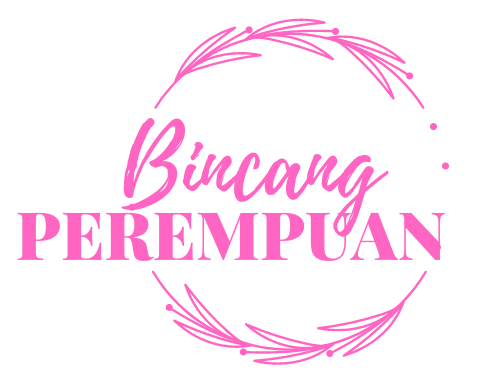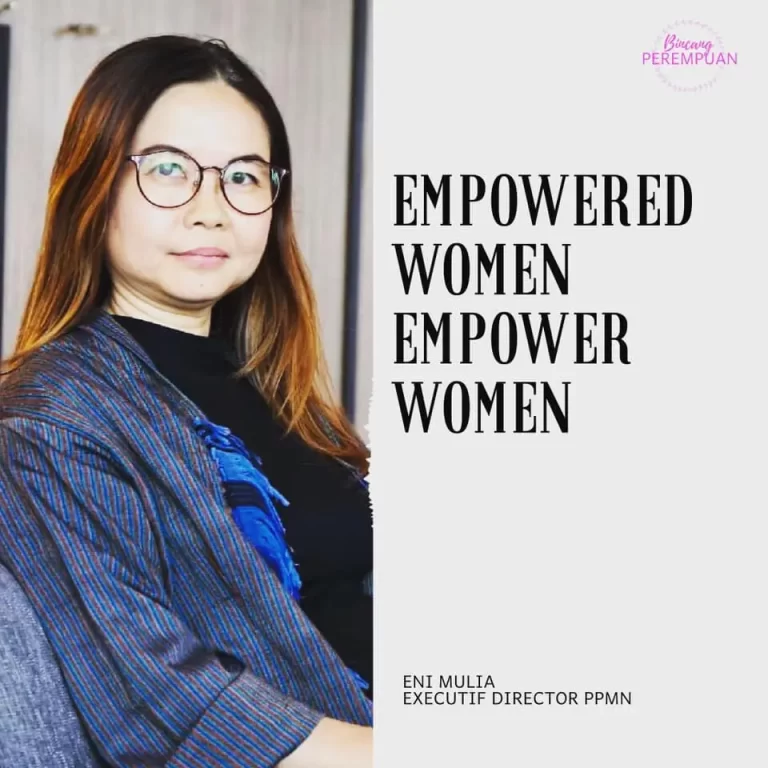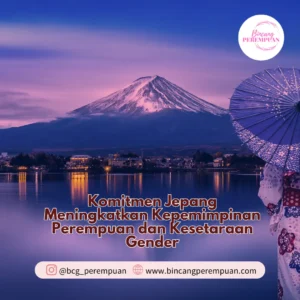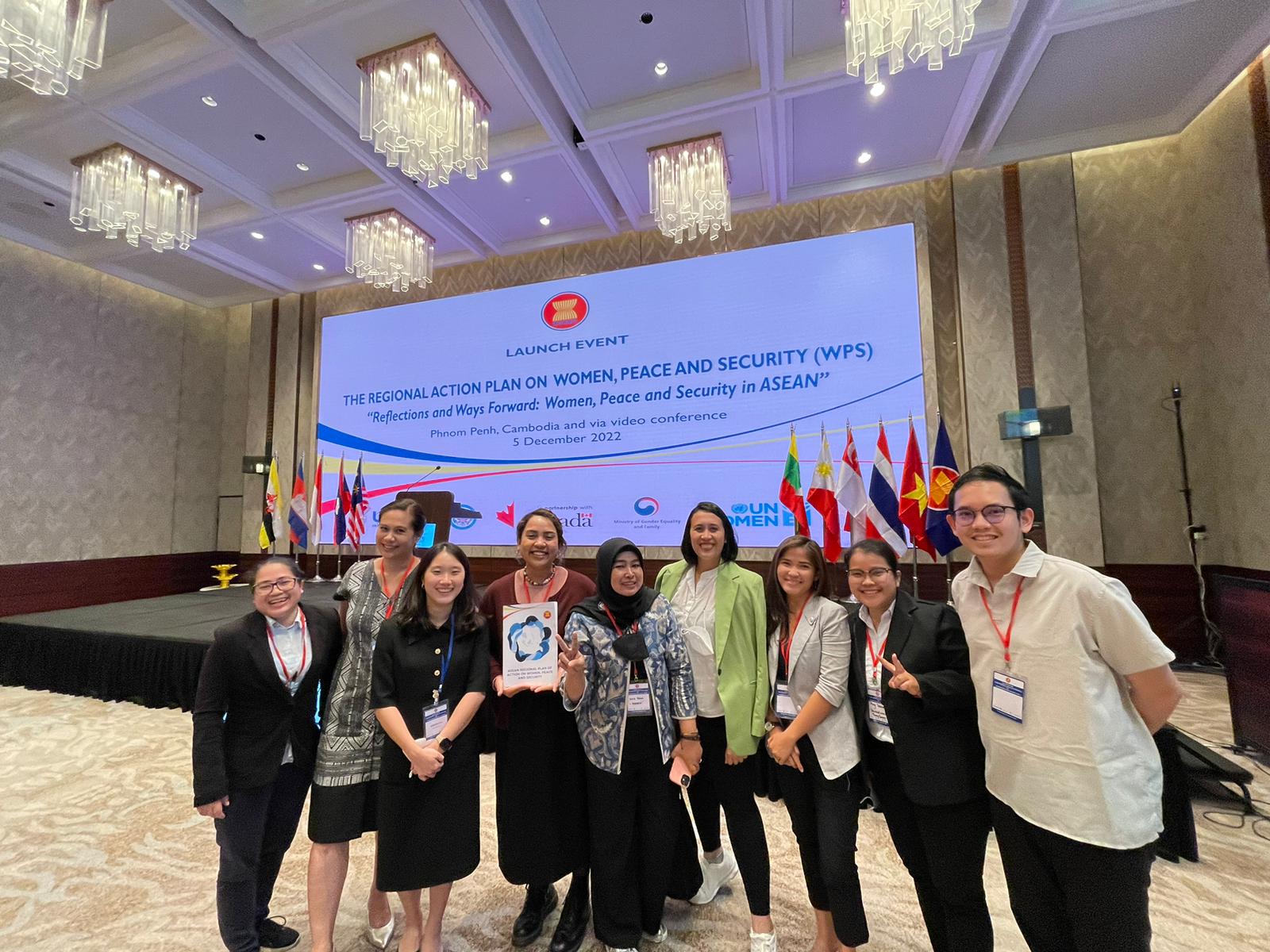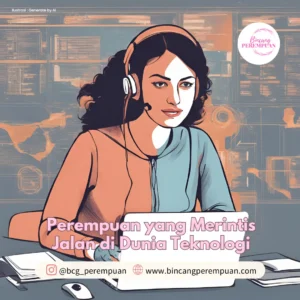WOMEN LEADERSHIP nowadays is not a strange thing. Though it’s not many, women have already begun showing their abilities as leaders in several lines such as in government level, core business, or in the smallest neighborhood unit called Rukun Tetangga (RT). This is a form of recognition for women and their capacity.
Lots of challenges for women appear to reach the top level or leading position. Patriarchy system does not give enough space for women. When a woman aims to be a leader in a unit system she will get a lot of challenge ranging from internal domestic to wider space. Challenge such verbal violence containing elements of bullying in the work place creates discomfort in carrying out the work. Even some attitude of old generation seems to reject the women leadership particularly millennial or younger women. They tend to underestimate those women as kids and as the result the good support system is never established.
Executive Director of Media Nusantara Association Center (PPMN), Eni Mulia, noted three points in women leadership: (1) The double load still prevents women from becoming leaders, (2) It is necessary to continue to study the development of movement and thoughts about gender and feminists, and last (3), Woman leaders need to possess management skill and gender-responsive budgeting.
“Going up at the level of decision makers, women are often cast away. This happens not only in media world, but also in other fields. Gender-responsive budgeting is something new and not yet popular. All leaders should know budgeting and how budgeting can be based on gender, for example in the Ministry of Finance, Sri Mulyani has implemented gender budgeting for its employees,”
Eni Mulia
Women Leadership in The Middle of Covid-19 Pandemic
When the first COVID-19 case found in New Zealand on February 28, 2020, Prime Minister Jacinda Ardern immediately implemented a strict policy of lockdown to the Kiwi State. Lockdown is going on for 7 weeks as reported by CNBC Indonesia.
Not like the other leaders of other countries, Jacinda Ardern was not busy looking for conspiracy theories or struggling with leveling the case curves. She instead tried to stop the spread of Covid-19.
The same actions were taken by Norwegian Prime Minister Erna Soldberg, Denmark Prime Minister Mette Frederiksen, Prime Minister of Finland, and Taiwan President Tsai Ing-wen. Each of them took action with showing-empathy-based approach.
Along the COVID-19 pandemic all around the world, women leaders are provenly successful in bringing their countries out of the plague. ‘Masculine’ leadership values are considered to be failing but ‘feminine’ values with empathy, tenderness, and warmth are more effectively overcoming the crisis. The similar opinion expressed by Executive Director of Media Nusantara Association Center (PPMN), Eni Mulia when opening online training with 10 recipients of the 5th generation Citradaya Nita fellowship in 2019-2020, Monday (6/22).
“It is very contrast to male leaders who concern more on searching for conspiracy theories in the middle of Covid-19 crisis. This means fresh air for women that the world sees female leadership and in the future we’ll hopefully see more female leaders, “
Eni Mulia
Women in Newsroom
The media plays an important role in shaping people’s perception of women. The lack number of women in newsrooms is becoming problematic. Moreover, according to Tirto.id media in Indonesia experience significant growth.
The lack number of women in newsrooms has an impact on the pattern of reporting. When this happens, gender issues that become the reporting field become biased. Men who are not at all gender-friendly will write women’s issues based on their perspectives. Even some women with insufficient knowledge can also write issues about women to be gender-unfriendly.
In the other condition, most female journalists are still experiencing discrimination at work place and when they are working at field. The standardization of women journalists in each media is not the same. It all depends on the policy of Newsrooms. Female journalists also have limited opportunity to develop themselves that are impacting to the lack of quality and sufficient knowledge. This causes female journalists rarely able to be at the top level due to the stagnation of the roles given. Once she reached the editor’s level, her position will stagnate, or she may be removed to the public bureau and advertising sections. Patriarchy culture also makes women journalists have narrow domain.
In fact, Susan Goldberg became the first woman to lead an editorial room after 131 years of National Geographic established. It took the Financial Times in England 135 years to give a woman the chair, and the new Kompass had its first female editor after 53 years. All those facts show how difficult it is for women to seize the opportunity to lead the media.
Through the Citradaya Nita program, Nusantara Media Development Association (PPMN) successfully selected 10 journalists from several regions in Indonesia, to be given a leadership program so that they can empower their communities.
“Empowered women can empower women, “said Eni Mulia.
The following is the 5th Batch of Citradaya Nita Fellowship of 2019-2020
- Betty Herlina, Bengkulu
Theme: Increasing the Capacity of Women Journalists on Gender
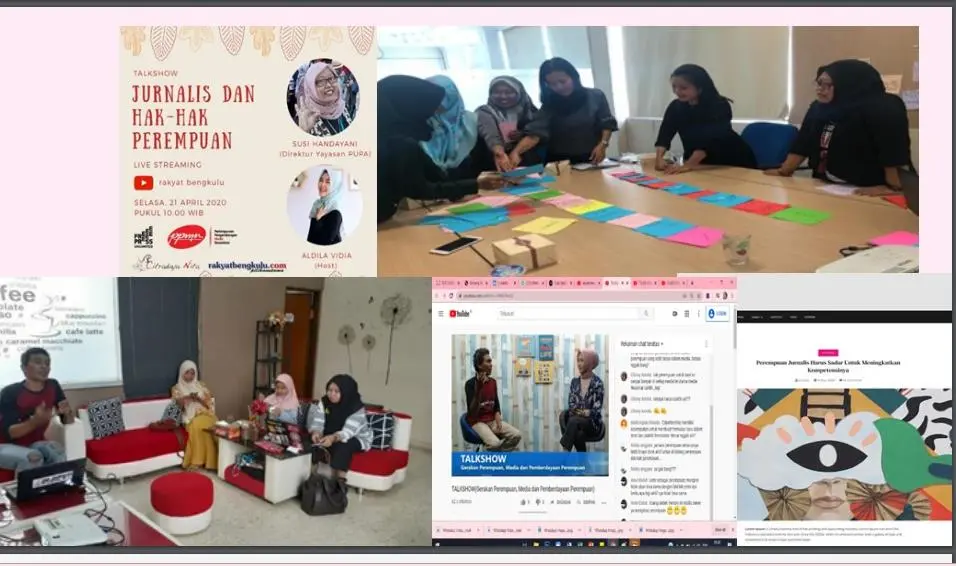
Betty involved 5 female journalist participants in Bengkulu to collaborate with her during the program. The purpose was to increase the capacity of women journalists to write gender-based news.
Betty’s activities began with recruitment, workshops, talk-shows, creating websites and producing news content to be published on various media platforms including social media. Betty opened the space for women journalists in Bengkulu to deepen the topic of writing on women’s issues.
This program will help in publishing news or writing concerning women’s issues that have been difficult to get a place in the news, not only in local media, but also in national media.
2. Bhekti Suryani, Yogyakarta
Theme: Collaboration on Women Journalist reports on the Impact of Development on Increasing Violence and Gender Injustice
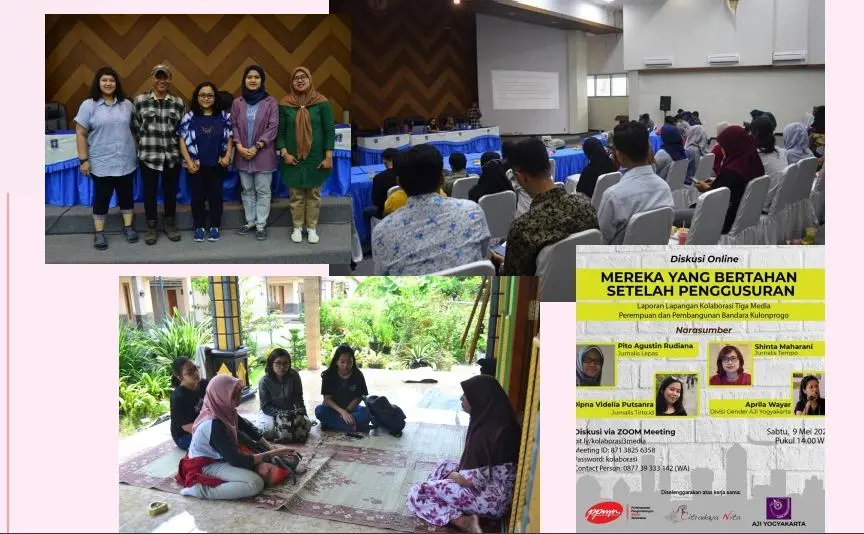
Bhekti designed a joint reporting workshop program. The first event was a workshop. Bhekti involved Rifka Annisa, Women Crisis Center and UII Jogja. This workshop was a preliminary introduction to three participants of gender-based fellowship reports as well as the socialization on understanding gender issues related to infrastructure development.
The three participants selected to receive a gender-based fellowship for women affected by the development of Yogyakarta International Airport (YIA) were Pito Agustin Rudiana (IDNTimes), Shinta Maharani (Tempo), and Dipna Videlia Putsanra (Tirto.id).
Collaborative reporting by women journalists initiated by Bhekti opened the opportunity to transfer knowledge and practice journalism skill to produce more lengthy reports.
3. Ika Yuniati, Solo
Theme: Empowerment of Gender Understanding to Reduce Sexual Violence and Premarital Pregnancy among Students
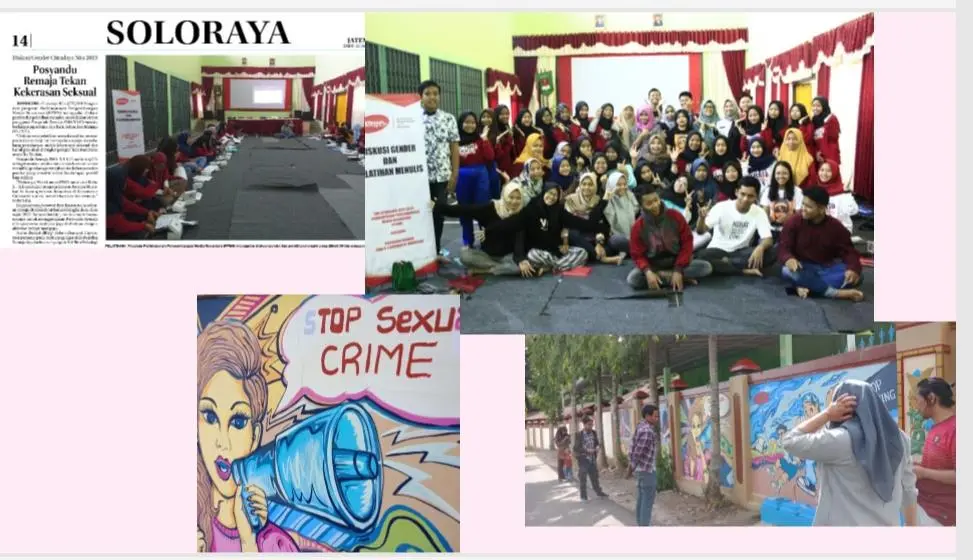
Ika used the 2019 Citradaya Nita program to support a program to suppress sexual violence against adolescents in her region. Observations to schools and teachers were conducted to interview and explore data and bridge the communication.
Girimarto region was chosen based on the data that showed problems related to the level of adolescent sexual violence. From this problem, Ika was able to initiate an appropriate program to reduce the number of adolescent sexual violence.
Ika was also able to highlight some other things like the importance of increasing self-confidence especially the girl teenagers that will foster psychological development and leadership ability. During the program, Ika held 3 discussions, drawing murals, talk shows and content production for social media platforms.
4. Irma Hafni, Aceh
Theme: Increasing Understanding of Gender Equality in Islamic Boarding-school
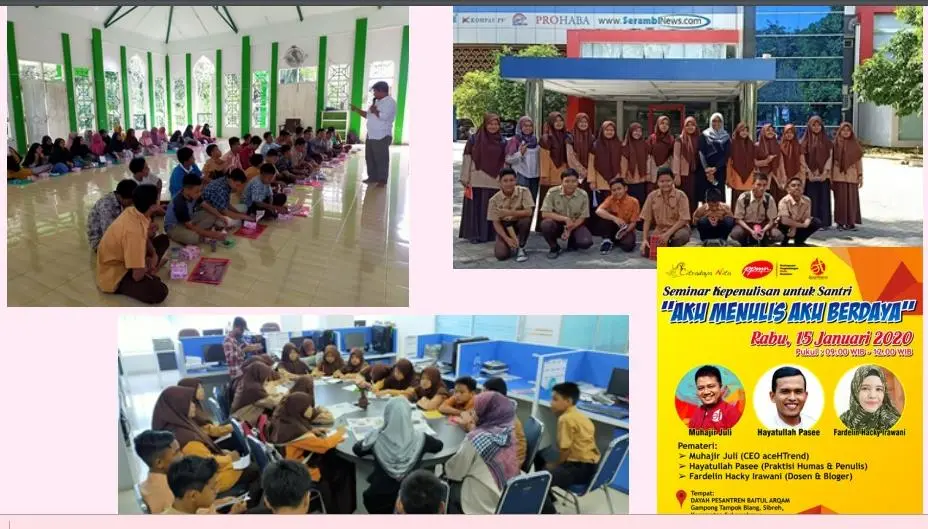
The key to Irma’s success was the approach she adopted eve since the proposal was prepared. Irma knew the challenges and she also made a good approach with the management of the boarding school. Starting her program with writing activities that were already taught at school, Irma then inserted messages about gender equality.
During the program, Irma conducted 7 mentoring and 1 media visit. Another thing that also needs to be appreciated by Irma’s program is that she was able to present directly a number of professionals who could inspire the participants. Not only invited speakers to class sessions, Irma also invited participants to meet in person and visited the media office.
This activity could leave an impression on the participants’ memories and be able to motivate the participants to continue learning, going to school, and writing as well as starting to apply gender equality.
Baca juga: Media Berperan Mengedukasi Masyarakat agar Adil Gender
5. Kartini Nainggolan, Palu
Theme: Empowering Citizen Journalists in Huntara to Monitor the Women and Children Rights after Disaster
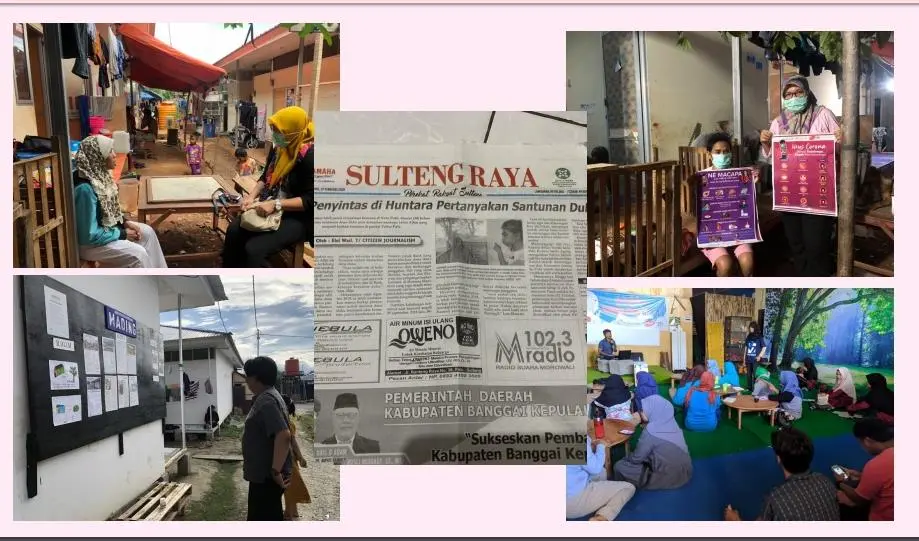
To run the program, Tini invited 6 female Citizen Journalists from 3 shelters. Citizen Journalists strived to be survivors in the shelter. The selection of survivors to become citizen journalism was very right to do considering that Palu was still in a recovery period after being hit by the earthquake and tsunami.
This program was very beneficial for both women empowerment and expanding journalistic expertise. In addition to writing for bulletin board, survivors can also write for therapy. In terms of program planning and activity management, Kartini showed that she was able to involve and collaborated with various parties, including NGOs, to capture the involvement of the survivors.
This partnership could be a good start for joint collaboration of various organizations to increase women empowerment.
6. Robiah Mactumah M, Jombang
Theme: Empowering University Students in Islamic Boarding-School for Gender-Based Content Production
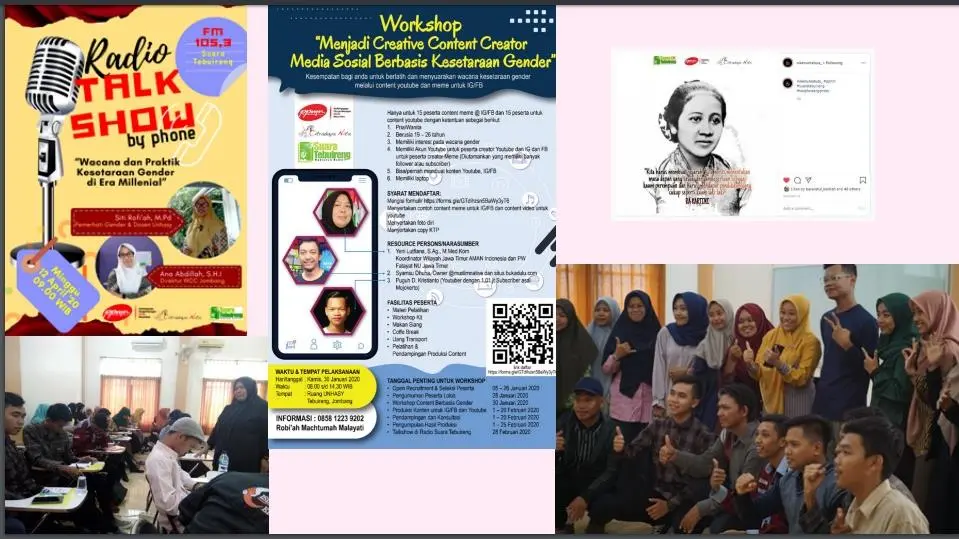
Through the Citradaya Nita program, Robiah opened the access to channel the knowledge and practices of gender equality to millennial and Z generations. One of them is in Tebuireng village of Cukir, Diwek, Jombang. In the village is the Hasyim Asy ‘ari University Campus (UNHASY) located which is influenced a lot by Islamic traditions. Robiah invited UNHASY students to participate in producing content concerning gender equality.
The participants could feel the benefits of uploading these contents. They mentioned some changes like the knowledge on equality and inequality gender, increasing interest in gender-themed discourse, and students’ capability to produce gender-based content for social media specifically memes and YouTube videos.
Robiah also organized workshops and talk-shows which served as a discussion room to convey students’ ideas and thoughts.
7. Luh de Suriyani, Bali
Theme: Companionship and Empowerment of Women with Mental Disorder for Fair Access to Public Services
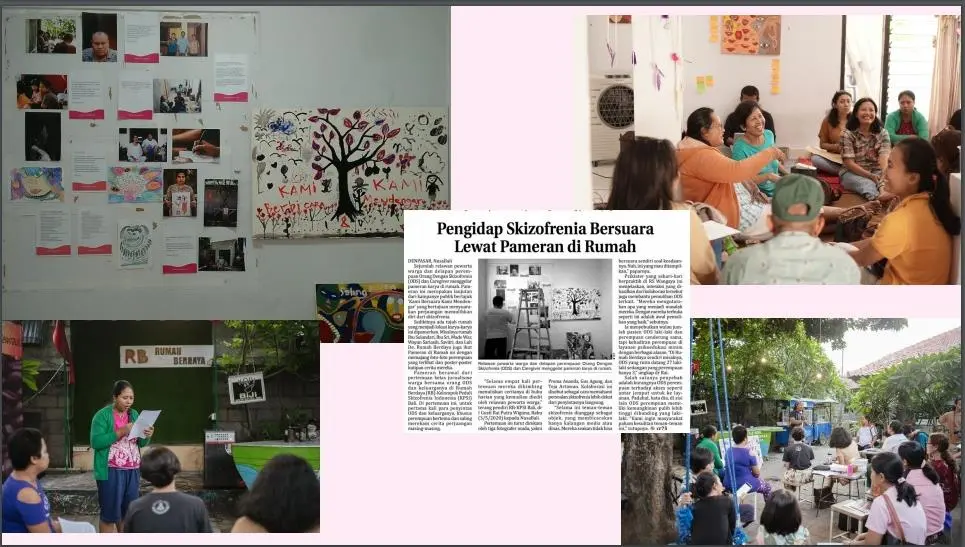
Media Journalism members of BaleBengong.id have made a series of in-depth report of national health insurance for people with mental disorders (ODGJ) in Bali. Luhde encouraged women with mental disorder to speak up through a number of platforms such as podcast, hand-writing letters, testimonials, articles, and exhibitions. Luhde together with 5 ODGJ and 5 volunteers made an in-depth work to advocate the needs and assistance to ODGJ.
8. Wati Susilawati, Pontianak
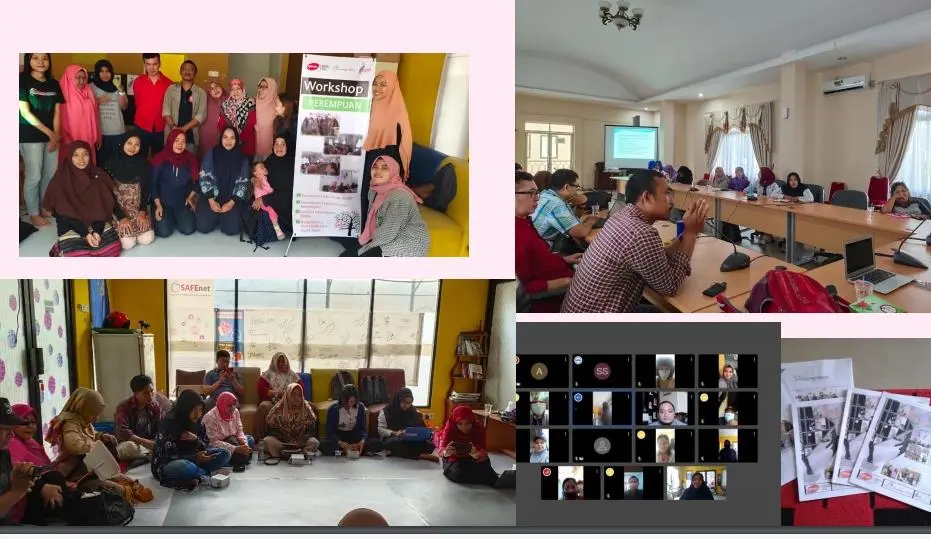
Wati enhanced the abilities of women journalists, writers, and local influencers in writing pro-women content. With increased capacity, the women were encouraged to emerge at the level of editorial leadership in their respective media. She also tried to increase sensitivity and trained the campus press, writers, local influencers, both in writing books and content production that support the campaign of empowered women.
Through her workshop, Wati also gave understanding to participants (journalists/ writers, campus press, activists and local influencers) regarding the importance of women involvement in politics. Studying politics becomes a public policy effort that leads to the promotion of women’s interests and gender equality.
Wati made FGD, 3 workshops, training, videos and magazines containing articles made by participants of the program. All activities were intended to the Increasing capacity of journalists and influencers for content production on women with gender equity.
9. Maria Andjelin, Bajawa
Theme: Empowering Migrant Women on Gender Equality
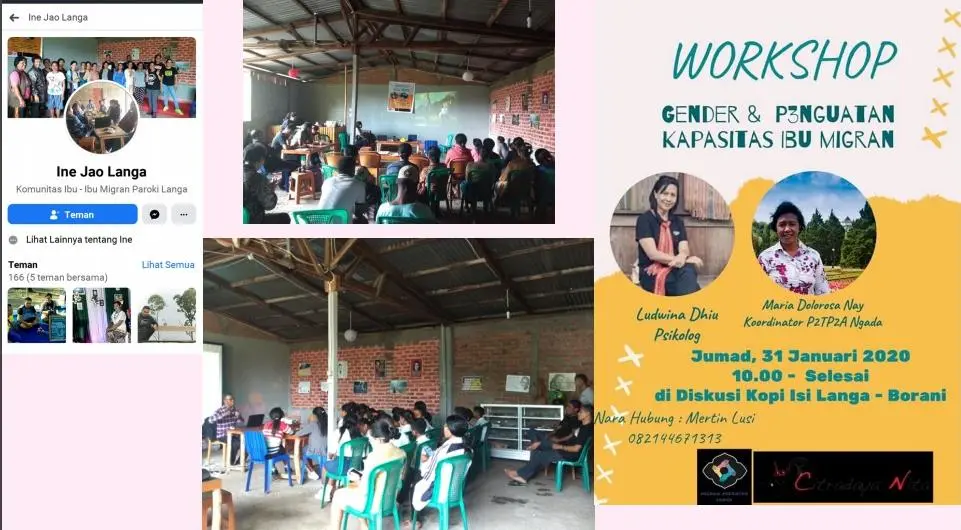
The first activity undertaken by Merlyn was to form the Community of Migrant Women and organized media discussion related to journalism and gender equality. After that in order to increase the interest and motivation of the Migrant women in participating in Citradaya Nita activities, Merlyn inserted other materials such as weaving and psychological consultation. Provenly effective, this activity was attended by several representatives of migrant women, local media and youth communities who concerned with the condition of migrant women in Langa region.
The benefit of this journalistic training was that it could sharpen the abilities of local youths and students, including migrant children, migrant ladies and their children in conveying ideas, aspiration and illustration about problems in the society through writing or social media content that were beneficial to the community. In every discussion, Merlyn tried to dissect the various problems experienced by migrant women to help publicize their problems to get Government’s responses and be widely known to the public. The radio station where Merlyn works is the only radio in Bajawa.
10. Khairiah Lubis, Medan
Theme: Increasing the Capacity of Journalists on the Reports of Women and Children with HIV/AIDS
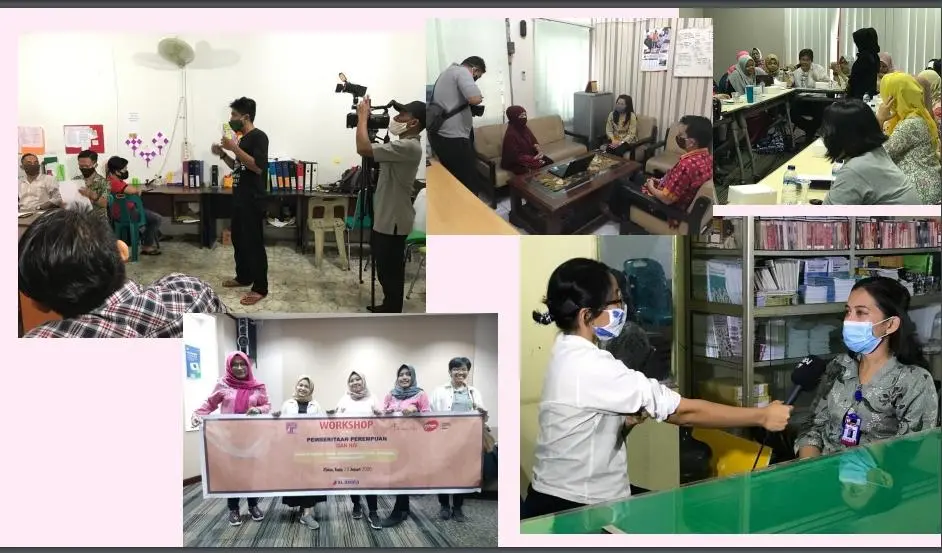
Awi took effective steps to educate housewives through the media because media could reach housewives wherever they are. She gave training for women journalists and health journalists through workshops and collaborative reports, so that they could produce educative and empathetic news about preventing the transmission of HIV AIDS to housewives and children.
Awi took 5 female journalists in Medan as participants in collaboration and independent reports. She also presented speakers from FJPI as keynote speakers in the workshop and involved FJPI website to publicize Citradaya Nita’s activities. During the Covid-19 pandemic, her program faced some obstacles such as housewives infected with HIV /AIDS, as part of vulnerable groups, were afraid of being interviewed, health workers became very busy due to Covid-19 and the needs to get pictures for journalists. Regardless all these obstacles, Awi could still complete the program well. (**)
